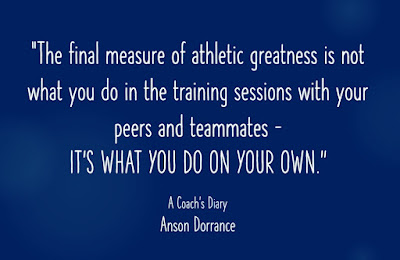TRUST
“With anything that you are dealing with, pray, trust God, and stay busy being a blessing to others.”I always tell my players, “If you want to play more, I have to be able to TRUST you more. I have to be able to TRUST that you can execute what we do and teach in practice. I have to be able to TRUST that you will show up to practice and games ready to work and ready to compete. I have to be able to TRUST that you will be able to fight through the adversity that WILL come.”
As athletes, we have to TRUST ourselves and the work that we put in. Every practice and every game, we are going to do some good things and we are going to do some bad things. No matter what, we have to TRUST that we can bounce back and do and execute what we have worked on. You have to believe in yourself and you have to TRUST yourself. That TRUST comes from putting time working on your game. The more you work and the harder you work, the more consistent you will become and the more you can TRUST yourself.
The same can be said for your relationship with Jesus. He wants us to believe in him and TRUST in him. When Jesus sent the disciples out as sheep in the midst of wolves to share his message, he told them, “Beware of men, for they will deliver you over to courts and flog you in their synagogues (Matthew 10:17).” But he also said, “When they deliver you over, do not be anxious how you are to speak or what you are to say, for what you are to say will be given to you, for it is not you who speak, but the Spirit of your Father speaking through you (Matthew 10:19-20).” He told them to trust that God will deliver the words that they need to speak.
Even when the Pharisees and people to whom he was preaching questioned him and asked for a sign from heaven, Jesus said, “Why does this generation seek a sign? Truly, I say to you, no sign will be given to this generation (Mark 8:12).” Jesus also said, “You will be hated by all for my name’s sake. But the one who endures to the end will be saved (Matthew 10:22).” We have to TRUST him.
Finally, after preaching to and feeding 5,000 people on 5 loaves of bread and two fish, Jesus made the disciples get into their boat and go to the other side of the sea while he dismissed the crowds. After the fourth watch of the night, Jesus came to them, walking on the sea. When the disciples saw him, they were terrified, but immediately Jesus spoke to them, saying, “Take heart; it is I. Do not be afraid (Matthew 14:27).” When we are afraid, we have to TRUST him.
We have to do our part. We have to put in the work. We have to show up early, leave late, and do our work between practices. We have to show that we can be TRUSTED. But we can always trust in God. We can always TRUST Jesus. Just like in sports, that TRUST is built in the work we put in. Read your Bible, say your prayers, and find time every day to find peace and quiet and talk to God.
That is where TRUST is built.
THIS WEEK
1 - Trust God. Trust that He will take care of what you can’t. Trust that He will take care of the problems, challenges, and adversity you are dealing with. Just do your part by working hard and being a great teammate.
2 - What can your teammates trust you with? What are 1-3 things that your coaches and teammates can trust that you will do every practice and every game?
3 - Read Genesis 12:1-3 and think about ways that you can serve other people. Find ways to be a blessing to your teammates, classmates, co-workers, and anybody that you come in contact with. You are blessed to be a blessing.
4 - What is one thing that you need to work on? What is one area that you don’t trust yourself with? What is one thing that you can do to improve that trust in yourself?
5 - EXTENDED READING: Read Matthew 10 to see the instructions that Jesus gave to his disciples. Read about the adversity that Jesus told his disciples that they would experience, and think about how Jesus told them to trust God through the process.
To get a Google doc version of this, click here.


















